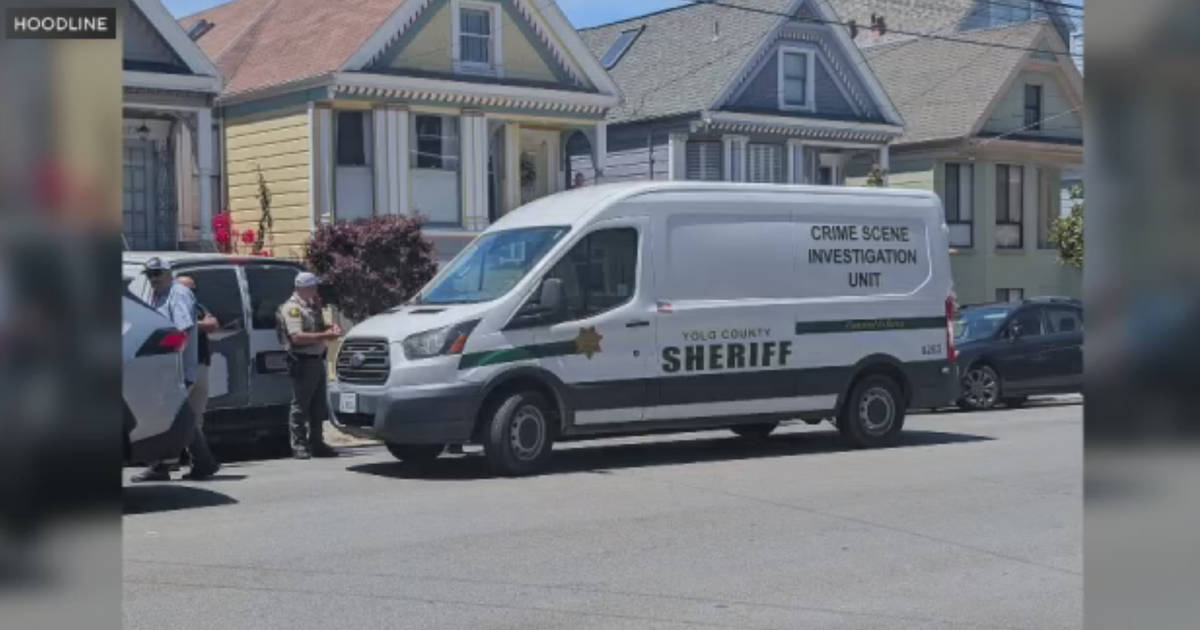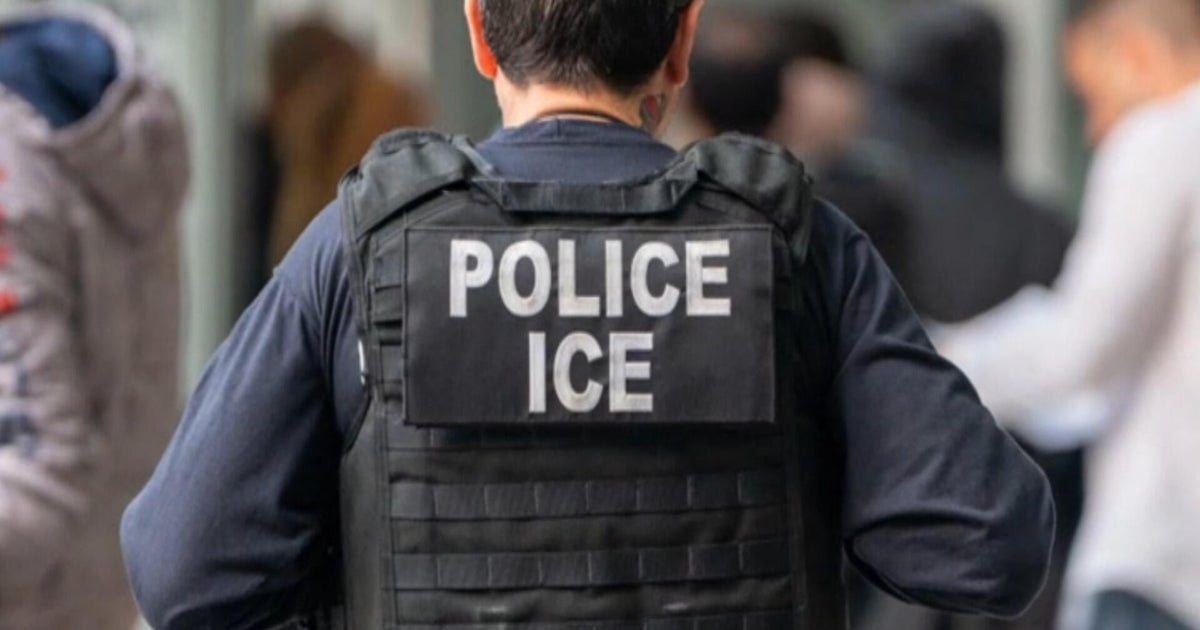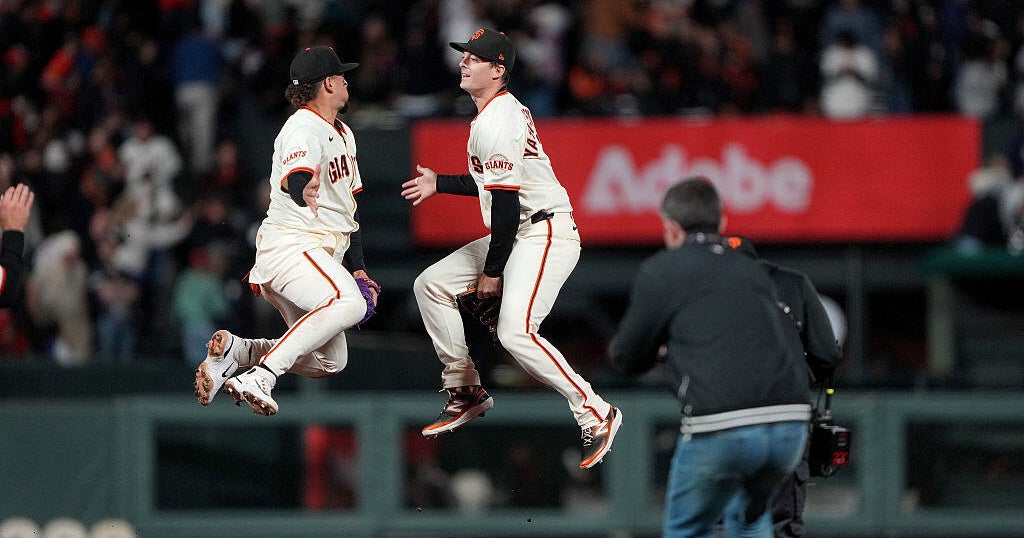CBS SF Talks To NYC Bassist And Producer Bill Laswell
By Dave Pehling
SAN FRANCISCO (CBS SF) -- Prolific NYC bassist and producer Bill Laswell returns to the Chapel in San Francisco during the first week of February, bringing an impressive array of boundary-smashing ensembles that will perform over the course of five nights in the Mission starting February 4th.
The bassist first visited the venue last summer when he played two improvisational duo sets with fellow New York music iconoclast John Zorn. It was then that the seeds where sown for the upcoming five-day run of performances. As part of the same heady New York scene that produced Zorn, Laswell actually rose to critical acclaim and more mainstream commercial success far earlier than the saxophonist, though his approach was no less unorthodox. First gaining professional experience playing bass in funk bands around Detroit and Ann Arbor, Laswell was equally intrigued by the outlandish onstage performances of local stalwarts the MC5, Iggy and the Stooges and Funkadelic as he was with the boundary-pushing jazz experiments of John Coltrane, Albert Ayler and electric-era Miles Davis.
He relocated to New York in the late '70s and immersed himself in the city's fruitful downtown "no wave" scene, founding the band Material with fellow future producers Michael Beinhorn (who later worked with the Red Hot Chili Peppers, Hole, Soundgarden and many other alternative-rock bands) on keyboards and Fred Maher (who went on to produce Lou Reed and Matthew Sweet) on drums. In addition to backing longtime Gong leader Daevid Allen as New York Gong, the group began recording its own original experimental jazz/industrial funk material with such guests as guitarists Frith and Sonny Sharrock appearing on their 1981 full-length Memory Serves.
Laswell and Beinhorn had a major commercial breakthrough with their production and collaboration on Herbie Hancock's 1983 album Future Shock and the huge hit "Rockit." Bridging their experience with jazz players and artists on the emerging hip-hop scene like scratch DJ DST, Laswell and Beinhorn helped create an influential post-modern landmark and introduce hip-hop to the mainstream.
The Material production team also brought together Afrika Bambaataa and former Sex Pistols singer John Lydon for the post-punk/hip-hop anthem "World Destruction" before Beinhorn split off for his own production career. On his own, Laswell would help albums by a diverse array of artists including a follow-up to Future Shock with Hancock (Sound-System in 1984) and efforts by Lydon's Public Image Ltd., punk godfathers the Ramones and Iggy Pop, hard rock stalwarts Mötorhead, Jamaican rhythm section Sly and Robbie and Rolling Stones singer Mick Jagger. He also founded the first of several heavy all-star jazz/punk improvisational groups in 1986 with Last Exit, featuring Sharrock, drummer Ronald Shannon Jackson and saxophonist Peter Brötzmann.
But Laswell's creative output reached new heights when supporter and Island Records head Chris Blackwell gave him the opportunity to start his own label, Axiom Records. Given major financial backing, Laswell was able to issue a dizzying string of recordings that ranged from his own genre-smashing projects Material and Praxis as well as a slew of dub and ambient collections to global sounds tracked in Africa and the Middle East (including a set from the Master Musicians of Jajouka) to new work from established artists like Sharrock, saxophonist Pharaoh Sanders, the Last Poets and members of Parliament Funkadelic. He also worked with Zorn and former Napalm Death drummer Mick Harris in the explosive improv/grindcore trio Painkiller. Laswell would later participate in a pair of controversial remix projects, reworking the music of reggae icon Bob Marley and the electric jazz of his avowed influence Miles Davis.
Laswell's prodigious onslaught of releases through Axiom continued through a parent company switch when Blackwell resigned from his position as Island CEO (he had sold the label to Polygram in 1989 prior to Axiom being founded) and started Palm Pictures. There were more Axiom albums for a time -- including Laswell's all-star collision of traditional Indian music and electronic dance sounds Tabla Beat Science that featured such notable percussion and production wizards as Zakir Hussain, Trilok Gurtu, Karsh Kalea and Talvin Singh as well as sarangi player Ustad Sultan Khan and Bay Area turntable maestro DJ Disk.
While Axiom would eventually fold, the turn of events did little to slow Laswell's remarkable output. In 2010, he would start another new label, M.O.D. Technologies, that took it's name from the bassist and producer's latest dub-infused sonic collective Method of Defiance. For this residency at the Chapel, Laswell will revisit past projects and unveil new ones. He is set to perform with the ambient/dub trio Divinations (which includes new age musician and zither player Laraaji and drummer Hamid Drake), Bass Invaders with fellow low-end specialist Jah Wobble (Public Image Ltd., Invaders of the Heart) and Bay Area multi-instrumentalist Peter Apfelbaum and bassist/keyboard player Josh Werner, new threesome Sypher with legendary former Slayer and current Dead Cross drummer Dave Lombardo and violinist Doran Cheah, reunions of Laswell's celebrated groups Massacre (with avante-guard guitarist Fred Frith and This Heat drummer Charles Hayward) and Third Rail (featuring harmolodic blues/funk great James "Blood" Ulmer and onetime Funkadelic drummer Jerome "Bigfoot" Brailey) and a residency closing appearance by Method of Defiance with dancehall/dub vocalist and producer Dr. Israel, renowned turntablist DJ Logic, trumpeter Graham Haynes and drummer Guy Licatta along with Apfelbaum and Werner. CBS SF recently spoke with Laswell about his career and the upcoming run of concerts at the Chapel in San Francisco.
CBS SF: I'm figuring the residency at the Chapel stems from the night you played there with John Zorn last summer...
Bill Laswell: Yeah, probably, because I wasn't aware of the venue. I think Zorn had played there once before and he had the contract, so when we did the duo, it seemed like a good place to do something.
CBS SF: So did you bring it up with the Chapel's management? Or did they ask you after you played with Zorn?
Bill Laswell: It was kind of mutual. I met the guy at the Zorn concert and mentioned that I had a lot of stuff. So I just sent him a list of possibilities and then we started a dialog.
CBS SF: You've done similar runs at the Stone, but have you done anything like this outside of New York City? I guess you've also done some European jazz festivals where you played with one or more bands…
Bill Laswell: I did a few in Europe and in Japan I used to do five or six nights at a venue, which was a residency mostly with Japanese artists. And as far as the bigger festivals, I've done a few like the Roskilde Festival, which is more of a rock festival. There have been a few, but it hasn't been consistent.
CBS SF: As far as the groups you're performing with, one of your main current ensembles in Methods of Defiance closes the run, and you're revisits a couple of well-established groups with Massacre and Third Rail. When you are playing with groups that have a substantial amount of recorded work, do you figure out beforehand how much those sets draw on playing songs you've recorded material versus complete improvisation?
Bill Laswell: Yeah, a lot of those bands have a kind of repertoire based on pieces we've played before, but they allow for improv. So it's a little of both.
CBS SF: I'm less familiar with Divinations, the trio featuring new age instrumentalist Laraaji and -- while I'm a big fan of Dave Lombardo and his work with Slayer and Fantomas -- I had not heard of you working with him outside of the trio Bladerunner with Zorn. Will any of these groups be playing purely improvisational music?
Bill Laswell: A lot of the music that we do is based on a kind of language that's been developed over time. If it were people that had never played together, it would be total improv. But in this case, I think there's a language. Method of Defiance will have some fixed pieces and Massacre always plays some pieces, so it's never really sounding like improv. We have a lot of things that will come up in the middle of performance. It has more to do with patterns and repetition and is kind of blues related.
CBS SF: So is Sypher a new trio or have you performed together before?
Bill Laswell: I've played with Lombardo and Zorn a lot as Bladerunner, but this will be the first time with this idea. Originally, it was just going to be bass and drums. I thought of the violin as another sound. He [violinist Dorian Cheah] is in LA and works well with other players, so I thought it was an opportunity to see what he might do.
CBS SF: There are a number of Bay Area musicians you've had connections with on past projects, like Buckethead and Brian Mantia in Praxis as well as turntablists like DJ Disk and members of the Invisbl Skratch Piklz. Did you consider reviving any of those collaborations in SF, or are those projects that have been retired at this point? Or are there some special guests in the works that haven't been announced yet?
Bill Laswell: That's possible. I haven't really abandoned them. I'm sort of in the process of getting in touch with everybody. So anything is possible. I'm sort of running out of time, but I'm still trying to find some different people.
CBS SF: Another past Bay Area collaborator who you've worked with more recently is guitarist Henry Kaiser, who has played with Methods of Defiance. Is there any chance he might make an appearance?
Bill Laswell: I'm not sure. I'm going to look into it. I played with him many years ago, and in the last couple of years he kind of came back into what I was doing. And we did quite a few things with Wadada Leo Smith and a couple of his projects. But I hadn't really been in touch with him for a while.
CBS SF: Since you'd played with Zorn here last time, was Painkiller -- the band with him and Mick Harris from Napalm Death -- something you considered reviving for the residency?
Bill Laswell: Painkiller hasn't really existed in quite a while. What Painkiller evolved into is Bladerunner with Lombardo and myself and Zorn. So we haven't really discussed Painkiller in a while.
CBS SF: You've worked with a who's who of drummers over the course of your career, ranging from Ginger Baker, Zigaboo Modeliste and Funkadelic's Jerome "Bigfoot" Brailey to Ronald Shannon Jackson, Tony Williams and Charles Hayward from This Heat. Is there a through line that connects those drummers? What do you look for in a drummer to connect as part of a rhythm section?
Bill Laswell: Well, they're all completely different and they all fit into different situations. Their diversity is kind of over the top; there are just so many different people with different approaches. Some of them are internationally known and others are up and coming, but they all bring something unusual and unique. I've been lucky to play with some of the greatest.
CBS SF: Many of your performances in New York City have ended up being held at the Stone, the experimental music venue that John Zorn curates. Have you ever considered trying to have your own performance space there, or would that present too many logistical issues?
Bill Laswell: Yeah, especially if it's a small venue. Because it's kind of difficult to generate money in New York to cover everybody. To me, it might be too much of a responsibility. But that could change.
CBS SF: The music industry has gone through some seismic changes since you were running Axiom during the '90s, both in terms of how the business is run and how the Internet has altered the way people consume music. How have those changes shaped your approach putting out music with your current label, MOD Technologies?
Bill Laswell: I used to think the Internet was sort of a cop out. I really liked the idea of making a hard copies. But that started to dissipate and I got used to the Internet. I actually like it now. You can put out just one song if you want or less than a full album and people can hear it. So for me, it's developed into a positive thing.
CBS SF: One thing I need to ask you about stems partly from personal interest, but I also know from conversations with people who collect records like I do that this is a point of particular interest. As much as I've enjoyed a wide variety of albums that you put out with Axiom, one of my all-time favorite albums you put out was Sonny Sharrock's album with Pharoah Sanders, Ask the Ages. I've seen reference to it on the MOD website that it was going to finally be released on vinyl. Is that something that's still in the works?
Bill Laswell: Yeah, it's still in the works. It hasn't happened yet, but I think it will eventually. It's a classic record and it should be on vinyl.
CBS SF: From what you've been putting out on MOD, it looks like there are live recordings and studio recordings and some appear to be an admixture of the two, where you are editing and remixing live recordings you've made. Do you do any live, dub-style remixing when you perform, where the person doing the sound is manipulating what's happening on stage? I see you're still working with Oz Fritz and that he's listed among the people appearing at the Chapel residency...
Bill Laswell: Oz hasn't worked a lot in New York. A couple of times he has. But mostly it's a very simple live recording process, and then I mix it and edit it in the studio. I'm not as conscious about the recording when we're playing, but once you've played it and go back and listen and see. When you clean it up and work on the songs a little bit, it could be something interesting.
CBS SF: When you're working with recorded music, whether live or studio recordings, do you look at things the way say Miles Davis and Teo Macero or Can often did, where you work through the raw recorded material and try to find the song through editing?
Bill Laswell: Yeah, but it depends on the performance. In a lot of cases, things get really turned around and mutated and chopped up and every kind of word you can imagine. And other times, things just feel right and you don't really mess with it.
CBS SF: It occurs to me that editing technique might be part of your connection to both William Burroughs and Brian Eno, as far as embracing chance and happenstance in the creation of your music?
Bill Laswell: You could say that with both. I started out really early with Eno and realized his approach was kind of random and spontaneous. Sometimes the result you get is not what you expect. That was kind of a lesson in a way. As far as Burroughs, I just always liked his approach to everything with his cut-up method. That relates to music. Burroughs wasn't really a music person, but that process imposes the idea of taking a song and making it out of something.
I'm looking forward to this [residency]. To me, it's really important; it's like a history. Some of these bands are new and some of them go back many years. It's nice to kind of tie it together.
The Bill Laswell Residency at the Chapel runs from February 4 to February 8. For more information and tickets, visit the Chapel website.




